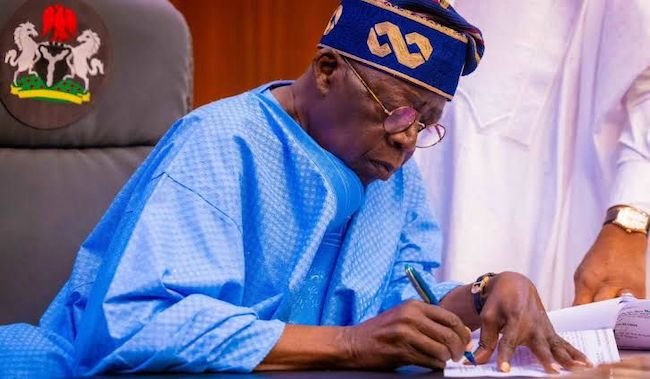Korede Abdullah observes in this article that given the passion for obvious display of nepotism in recent appointments into sensitive public offices, concerns mount as President Bola Tinubu favours South West in selections
Tongues have continued to wag as Nigerians are criticizing President Bola Ahmed Tinubu for the perceived lopsidedness in his recent political appointments, alleging that he is perpetuating the nepotistic tendencies of his predecessor, Muhammadu Buhari.

The President’s criticism over lopsidedness in appointments
The critics alleged that the bulk of his appointments both recent or old ones have gone to individuals from his native Southwest region, sparking accusations of favouritism towards the Yoruba ethnic group.
The criticism comes as the trend of Tinubu’s appointments has become increasingly pronounced since his assumption of office on May 29, 2023.
Many are expressing disappointment and concern that the President’s actions may exacerbate existing regional and ethnic tensions in the country.
The outcry suggests that Nigerians are eager for a more inclusive and representative approach to governance and are holding the President accountable for his promises of unity and fairness.
Breach of the Federal character principle
The Federal character principle was borne out of the need to ensure evenness in spreading government appointments to promote inclusion, representation, a sense of belonging and balance in the polity.

The underlying philosophy of the federal character principle is providing equality of access in public service representation to curb dominance by one or a few sections. To give it a legal tooth, the Federal Character Commission was established in 1996.
Many critics have referred to the appointments made by President Tinubu so far as ‘nepotism pro-max’ in view of the fact that the nation has six geopolitical zones. They added that the President’s attitude is unacceptable as it is in breach of the federal character principle.
It is argued that the South-West, the geopolitical zone of the president, has systematically taken all the juicy appointments in the country in total disregard of the principle equity, fairness and justice as encapsulated in the federal character Act.
The lopsided appointments
President Tinubu’s appointments have raised eyebrows, with critics accusing him of favouring his native South West geo-political zone. A list of key appointees reveals a dominance of individuals from the region, including:
– Wale Edun, Minister of Finance

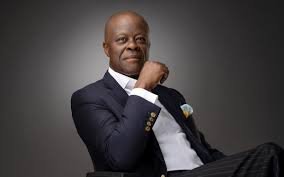
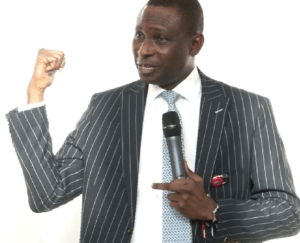
– Yemi Cardoso, nominated governor of the Central Bank of Nigeria (CBN)
– Zacch Adedeji, Chairman, FIRS
– Taiwo Oyedele, chairman, Tax Reforms Committee
– Tope Fasua, Special Adviser on Economic Affairs
– Bisoye Coker-Odusote, Director general of the National Identity Management Commission (NIMC)
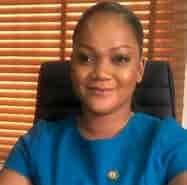
– Adeniyi Adewale, Comptroller-General of the Nigeria Customs Service
– Kayode Egbetokun, Inspector General of Police

– Babatunde Fowler
This trend has sparked concerns about regional bias and nepotism, with many calling for a more inclusive approach to governance. The President’s actions have drawn scrutiny, with some questioning whether he is prioritizing merit over regional loyalty.
Other appointees are Cornelius Oluwasegun Adebayo, (Executive Secretary/Chief Executive Officer of the National Agricultural Land Development Authority), Dr. Olufemi Adekanmbi, (Project Coordinator, Hydrocarbon Pollution Remediation Project), Mr. Tosin Adeyanju, (Executive Secretary, National Lottery Trust Fund), Oluwaseun Faleye, (Managing Director/Chief Executive Officer, Nigeria Social Insurance Trust Fund), Mrs. Mojisolaoluwa Kehinde Alli-Macaulay, (Executive Director (Operations), Nigeria Social Insurance Trust Fund), Ms Omolola Bridget Oloworaran, (Director-General, National Pension Commission).
Other appointees who are of the Yoruba stock include the Chief of Army Staff, General Lagbaja; Director-General of the DSS, Adeola Oluwatosin Ajayi, Director-General of the DSS; and many more that are skewed against other ethnic groups.
Mojisola Alli-Macaulay an  her baggage
her baggage
The appointment of Hon. Mojisola Kehinde Alli-Macaulay, former representative of Amuwo Odofin 1 Constituency at the Lagos State House of Assembly in July, as the Executive Director of the Nigeria Social Insurance Trust Fund (NSITF) has continued to spark criticism due to her controversial past.
In 2020, Alli-Macaulay faced accusations of repackaging COVID-19 palliatives meant for constituents as birthday souvenirs, raising questions about her integrity and suitability for the new role. A petition from her constituents called for her recall after the appointment, citing poor representation and misappropriation of the palliatives.
Despite these past controversies, Mrs Alli-Macaulay, who shares her state of origin with President Tinubu, is now occupying a high-ranking federal position. The decision to appoint Mrs Alli-Macaulay has attracted criticism and raised questions about the Tinubu administration’s commitment to transparency and accountability in governance.
Appointment of his in-law
Tinubu sparked more concerns about nepotistic appointment when he named his son-in-law, Oyetunde Oladimeji Ojo, as the head of the Federal Housing Authority (FHA).
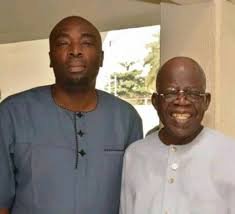
Ojo, a former member of the House of Representatives, is married to Tinubu’s eldest daughter, Folashade. This marks the first time President Tinubu has appointed a relative to a federal government position, raising eyebrows and fuelling accusations of favouritism.
The presidency defended the appointment, citing Ojo’s “over a decade of work experience in the housing and hospitality industries”. However, critics argue that the selection process should be based on merit, not personal relationships.
The move has sparked debate about the potential consequences of nepotism in government, with many Nigerians calling for transparency and accountability in leadership appointments.
The cabal in Tinubu’s government
An investigation by Africa Health Report (AHR) has uncovered a new “Cabal” exerting significant influence over appointments in the Presidential Villa.
This group consists of powerful individuals, including Wale Edun, Minister of Finance and Coordinating Minister of the Economy; Dele Alake, Minister of Solid Minerals Development; Femi Gbajabiamila, Chief of Staff to the President; Oluremi Tinubu, the First Lady; and Seyi Tinubu, the President’s son.

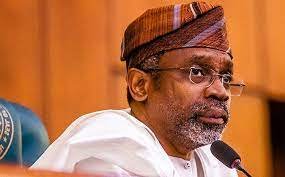
According to the investigation, these individuals remotely control key appointments in the Presidential Villa, raising concerns about the concentration of power and potential nepotism.
Seyi Tinubu, in particular, played a crucial role in mobilizing youth groups to support his father’s election campaign, and his continued influence has sparked questions about the transparency and accountability of the appointment process.
The emergence of this “Cabal” has significant implications for the administration’s decision-making processes and the distribution of power within the government.
Shehu Sani’s advice
In a programme on Channels TV in July, former Senator Shehu Sani advised President Bola Tinubu to prioritize competence in his appointments, warning him against repeating the mistakes of his predecessor, Muhammadu Buhari.
Sani, who represented Kaduna Central Senatorial District in the Eighth National Assembly, expressed concerns that nepotism could hinder the President’s success.
Sani cited Buhari’s eight-year administration, during which he believed nepotism was rampant, yet the government failed to deliver results in key areas such as security, economy, education, and healthcare.
He urged President Tinubu to learn from this experience and make appointments based on merit, rather than regional or personal loyalty.
It was the same month Senator Sani advice the president that the nation received a shock through the most nepotistic appointment any Nigerian leader has ever made.
In the appointments, three were from the North while seven were from Yoruba.
Surprisingly, no single person from Southeast and South South that has over 95% of oil reserves and gas reserves.
Implications of Tinubu’s nepotism
According to Mr Taiwo Oladimeji, a public affairs analyst who spoke with Africa Health Report (AHR), President Tinubu’s nepotistic appointments have far-reaching negative implications for the country. He said it doesn’t allow meritocracy.
In Oladimeji’s words, “Firstly, it undermines the principle of meritocracy, where the most qualified and capable individuals from other ethnic groups are overlooked for positions of power, leading to ineffective governance and poor decision-making.
“This can result in stagnation and decline in critical sectors such as economy, education, and healthcare.”
Oladimeji added, “Furthermore, nepotism fuels regional and ethnic tensions, as other groups feel marginalized and excluded from opportunities.
“This can lead to social unrest, political instability, and even violence, threatening the very fabric of Nigeria’s unity. By prioritizing his native South West region, President Tinubu risks alienating other parts of the country, creating a sense of disconnection and disenfranchisement.
Oladimeji concluded with this statement, “Ultimately, nepotism hinders Nigeria’s progress and development, as it creates a culture of cronyism and patronage.
“This can lead to widespread corruption, as those in power use their positions for personal gain rather than serving the public interest.”
“By failing to appoint the best and brightest, President Tinubu’s nepotism can condemn Nigeria to years of stagnation, missed opportunities, and unfulfilled potential.”
The public affairs analyst advised the president to see the entire country as his constituency by ensuring equity and fairness in the distribution of public positions and opportunities.
“So I advise President Tinubu to act like a statesman, rather than an ethnic champion with a vengeance mission”, he stressed.
There are consequences for the country with this twist in the art of governance. Can democracy survive and progress with this? It is a waitsee!

